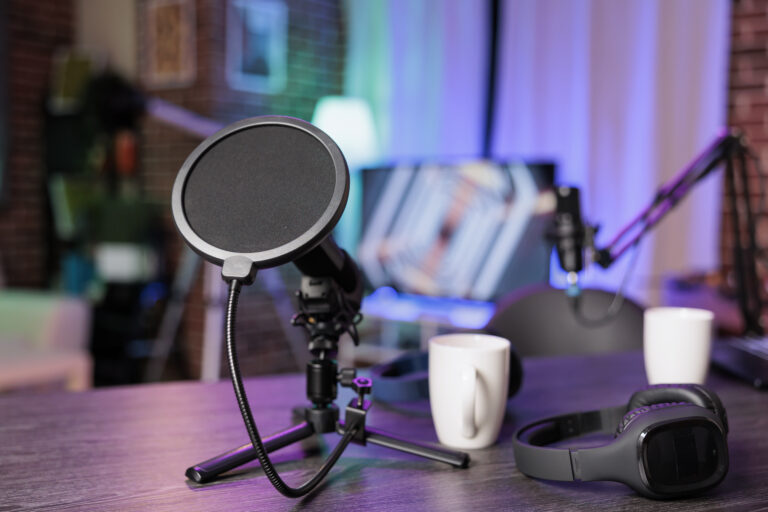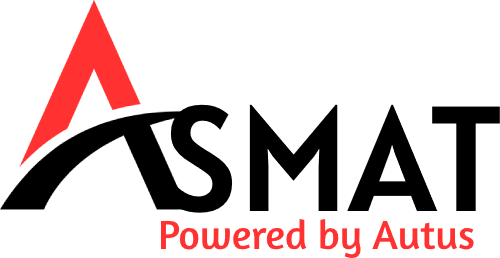
Podcasting has evolved from a small, passion-driven medium into a multi-billion-dollar industry. Every day, thousands of people listen to conversations, storytelling, expert advice or just plain old nice and relevant content in which they are interested. As the audience continues to expand at an increasing rate, creators are wondering how do you make money podcasting and monetize it as a self-sustained income stream?
While there’s no single path to success, there are several proven strategies you can use to generate revenue, even if you’re starting with a small but loyal listener base. Let’s explore these in detail.
1. Build Your Audience First
Monetization starts with an audience. In fact, even the highest-paying opportunities (like sponsorship and advertising) relate to how engaged your listeners are. Here’s what to focus on:
- Niche Selection: The more specific your topic, the easier it is to attract a dedicated audience. That being said, “healthy recipes for busy parents” will grab a far more loyal crowd than just going after the generic food podcast.
- Consistency: Releasing episodes at a specific day/time weekly keeps the audience engaged.
- Engagement: Answer listener emails, read their questions during the episodes, encourage feedback via social media polls or comments.
Without an engaged audience, your monetization strategies will have limited results.
2. Sponsorships and Advertisements
Sponsorship is one of the most recognizable revenue streams in podcasting. Brands will pay you to feature their products or services, and you can feature these in your episodes in three main ways
- Pre-roll ads: 5-10 second clip shown before your video starts playing. These are usually the cheapest ad slots but very effective as well.
- Mid-roll ads: Ads inserted within your episode, usually placed after a natural break. These have the highest listener attention and command premium rates.
- Post-roll ads: Ads played at the end of your podcast. While engagement may be slightly lower, they still offer value.
How to get started:
Start with smaller brands or local businesses that are inline with your niche if you have less than 5,000 downloads per episode. As you grow your listenership, you might join one of the podcast ad networks (like AdvertiseCast or Podcorn) or leverage a company like Midroll to broker deals for hosts.
3. Listener Donations and Crowdfunding
Crowdfunding is one of the easier monetization methods as you do not need that big of an audience to start raising money, you do need trust worthy people in your following. Your listeners can contribute directly using platforms like Patreon, Buy Me a Coffee, and Ko-fi.
What you can offer in return:
- Bonus episodes
- Early access to episodes
- Exclusive interviews
- Live Q&A sessions or AMAs (Ask Me Anything)
- Shoutouts in episodes
Many podcasters earn hundreds to thousands per month from dedicated supporters. The key is making listeners feel like part of an exclusive community.
4. Selling Your Own Products or Services
If you are already running a business, your podcast can essentially serve as another marketing technique to promote products or services. If you do not have a unique offering, you can create similar offerings based on your expertise.
Examples:
- Digital products: Ebooks, templates, workbooks, or courses related to your podcast topic.
- Physical products: Branded merchandise such as T-shirts, mugs, or tote bags.
- Services: Coaching, consulting, or speaking engagements.
A financial advice podcast might sell budgeting templates, and a marketing podcast could offer one-on-one consulting sessions.
5. Paid Memberships and Premium Content
It allows you to make consistent revenue while giving your biggest fans access to premium content. If you wish to make money, you can use Spotify Paid Subscriptions and Apple Podcasts Subscriptions to set up a way for people to pay for exclusive episodes or other perks.
Ideas for premium content:
- Ad-free versions of your regular episodes
- Extended interviews or deep-dive episodes
- Access to a private members-only feed
- Behind-the-scenes production insights
If your podcast features original, excellent content that listeners can’t find anywhere else, this model will function the best.
6. Events and Live Performances
Taking your podcast live can be exciting and profitable once you have a loyal and active audience. Formats for events include:
Event formats include:
- Live recordings: Let your audience watch you record an episode in real-time.
- Workshops: Teach skills related to your podcast’s theme.
- Fan meetups: Give listeners a chance to interact with you and one another.
Tickets can be sold, merchandise can be sold on-site, or VIP packages with meet-and-greets can be offered.
7. Affiliate Marketing
By sharing a unique link and recommending goods or services, affiliate marketing enables you to get paid. When listeners purchase through your link, you get paid.
Best practices:
- Promote products that genuinely benefit your audience.
- Disclose affiliate relationships to maintain transparency.
- Incorporate links into your show notes and make casual references to them throughout episodes.
For instance, a travel podcast may collaborate with travel insurance providers or luggage manufacturers.
8. Licensing and Syndication
Other platforms might want to license your podcast if it has exceptional and distinctive content. This could mean:
- Selling the rights to your podcast to a larger network.
- Licensing individual interviews or segments for use in documentaries, news programs, or other podcasts.
- Offering your show for syndication across different streaming services.
When your show achieves a certain level of popularity or acquires distinctive intellectual property, this model frequently becomes feasible.
9. Podcast Networks and Revenue Sharing
Joining a podcast network can give you access to:
- Larger advertisers and sponsorship opportunities
- Cross-promotion and marketing assistance from other network programs
- Professional production assistance
However, networks usually take a percentage of your revenue, so it’s important to weigh the benefits against the loss of independence.
10. Repurposing Content for Multiple Platforms
Repurposing content creates new revenue streams and improves visibility. One episode of a podcast can be changed into:
- YouTube videos (earn from YouTube ads)
- Blog posts (monetized through ads or affiliate links)
- Social media clips (drive traffic back to your podcast)
- E-books or guides assembled from your finest episodes
By using this method, you can increase the value of your work without starting from scratch.
Practical Tips to Maximize Podcast Earnings
- Invest in sound quality: Clear audio keeps listeners coming back.
- Analyze your audience data: Use hosting platforms that track demographics, download numbers, and listener locations.
- Negotiate effectively: Know your value before agreeing to sponsorship rates.
- Diversify income: Avoid depending on one revenue stream to stay financially stable.
Frequently Asked Questions (FAQs)
1. How many listeners do you need on a podcast to make money?
You can make money with a smaller audience by concentrating on niche markets and devoted fans, even though major sponsors might seek out shows with 10,000+ downloads per episode.
2. Do I need expensive equipment to start?
No. A microphone, free editing software, and a peaceful recording environment are the starting points for many podcasters. As your show expands, you can upgrade.
3. Can I monetize without sponsors?
Yes. Methods like crowdfunding, affiliate marketing, selling products, and premium subscriptions work without advertisers.
4. How long before I start earning?
It differs. It may take a year or longer for some podcasters to start making money, while others do so in a matter of months. The key is audience growth and consistency.
5. Is podcasting profitable in 2025?
Definitely. The industry is expanding, with more advertisers entering the space and audiences continuing to grow. The secret is finding your niche and building trust with listeners.
6. How do podcasters earn money?
Podcasters can make money in a number of ways, such as through advertising and sponsorships, crowdfunding or listener donations, selling their own goods or services, providing premium content or memberships, hosting live events, affiliate marketing, content licensing, and joining podcast networks.The most successful podcasters often diversify their income across multiple streams to maximize revenue.
7. How much money do you make on a podcast?
The size of the audience, the niche, and the monetization strategy all have a significant impact on podcast earnings in India. Through product sales, affiliate marketing, crowdfunding, and sponsorships, small but devoted shows can earn between ₹5,000 and ₹25,000 a month. Through ad networks, premium content, and brand partnerships, podcasts with thousands of downloads per episode can generate between ₹40,000 and ₹4,00,000+ per month. Some of the best Indian podcasts make between ₹50 lakh and ₹1 crore a year, particularly those that have multimedia expansions, live events, or strong brand deals. The main sources of revenue continue to be listener engagement, consistency, and niche targeting.
There are a ton of ways to make money with podcasting, including live events, crowdfunding, sponsorships, and merchandise. Delivering worthwhile content, cultivating an active audience, and expanding your sources of income are all essential for success. Your podcast can develop from a side project into a steady source of revenue with commitment, planning, and imagination.
